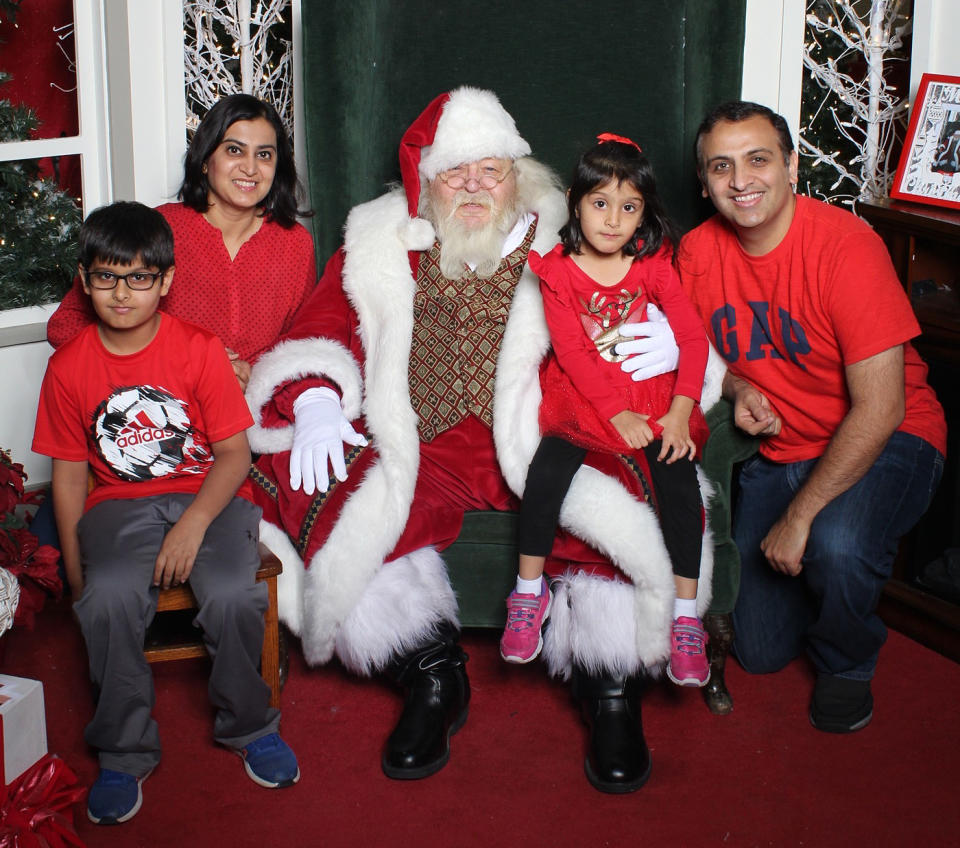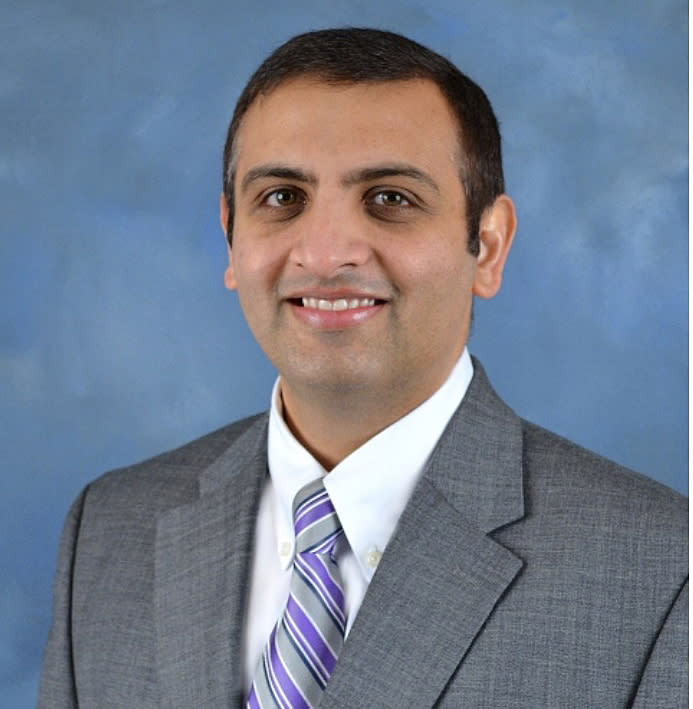Doctor prepares deportation procedures for his family in case he dies on coronavirus front lines
After Dr. Parth Mehta moved into his basement in early March, he wrote goodbye letters and put together an emergency binder with important information for his family.
Those are actions he's taken in response to rising infections and deaths amid the coronavirus pandemic: He's had to prepare for the unwelcome but heightened possibility that he could die because of his exposure to the virus on the job.

The binder he prepared contains login credentials for his social media accounts, phone numbers of family and friends, and information about his investments.
It also includes details on deportation procedures because if he dies, his wife and two young children will face the risk of being deported to India.
“If I get sick and if something happens to me, it’s basically over for my family,” he told NBC Asian America.
Mehta, a hospitalist, is one of approximately 127,000 immigrant physicians in the United States who account for nearly a quarter of all the country’s licensed physicians. Of that group, the majority come from India, followed by the Caribbean, Pakistan, Philippines and Mexico, according to the 2018 Federation of State Medical Boards census.

“It’s not just a tangential part of health care access that we’re talking about,” said Greg Siskind, an immigration attorney who specializes in physician immigration cases. “It's a pretty core part.”
Physicians like Mehta are in the U.S. on H-1B visas that are tied to their employment. If those visa holders become incapacitated or disabled for any reason and are unable to work, they and any family members on H-4 dependent visas will become subject to deportation. If a H-1B visa holder dies, any H-4 dependent family members become undocumented and instantly subject to removal, Siskind said.
It's a plight immigrant physicians and their families face largely due to the country's massive visa backlog.

From fiscal years 2007 to 2018, the majority of H-1B visa petitions were filed by Indian nationals — approximately 2.2 million out of nearly 3.5 million — according to U.S. Citizenship and Immigration Services data. And according to the Cato Institute think tank, recently backlogged Indian workers face a wait time of 90 years.
“You have doctors that are basically sitting for 20 years in this precarious situation of being on a temporary visa that, should something happen so that the person can’t continue on the temporary visa, their family is potentially subject to deportation,” Siskind said. “It’s a completely legitimate concern that these doctors have.”
The only way to address the issue is through legislation, he added.
Physicians for American Healthcare Access (PAHA), a group dedicated to increasing health care access in underserved communities, is one organization that has been advocating for legislative solutions to protect immigrant doctors.
One of the bills the group is backing, a bipartisan measure called the Healthcare Workforce Resilience Act, was introduced in Congress earlier this month. If passed, it would recapture 40,000 unused immigrant visas and allocate them to doctors and nurses to help fight against COVID-19.
Siskind said the bill would help many immigrant physicians because it would clear out much of the green card backlog for them, but it doesn't address other problems they face.
“It’s an occasion to rejoice a little bit that yes, something is being done, but it by no means is enough,” Dr. Sanjeev Alur, president of PAHA, said.
He noted that the bill doesn't protect immigrant medical trainees on J-1 exchange visitor visas, which Siskind said the majority of immigrant doctors enter the country on. The J-1 restricts trainees to working in a particular location, Alur said, though they've been granted some flexibility to help fight the pandemic.
“They're not full fledged doctors yet, but they're on the front line,” Alur said. “They have the same risks. They're still on a visa.”
Alur and Siskind said that immigrant doctors have been and are critical in filling the country's physician shortage, which has been building over the last two decades. It's a problem that has been mostly noticed in rural areas, which typically have a harder time recruiting doctors than big cities, Siskind said. According to the Association of American Medical Colleges, the United States is expected to experience a shortage of up to nearly 122,000 physicians by 2032.
Related: The group’s philanthropy comes as Taiwan receives worldwide praise for containing the coronavirus.
“You can’t snap your fingers and end the need for international doctors,” Siskind said.
Mehta, who works in a hospital in Peoria, Illinois, a city about two and a half hours west of Chicago, said he worried about the possibility of becoming disabled or dying even before the pandemic. But while that risk has always existed, it has risen exponentially in recent months, he said.
Health care personnel have accounted for nearly 20 percent of COVID-19 cases, according to the Centers for Disease Control and Prevention.
He said he questions how immigrant doctors are being praised as heroes and front-line warriors while they are physically able to fulfill their duties, yet seem to hold no value if they become incapacitated.
“It’s kind of weird that we are considered essential when it comes to saving lives, but we are considered nonessential when it comes to immigration purposes, and your family faces the risk of deportation if you die,” Mehta said.
Follow NBC Asian America on Facebook, Twitter and Instagram.

